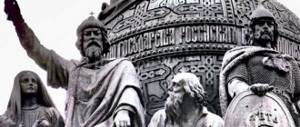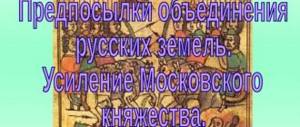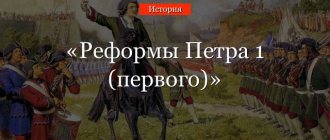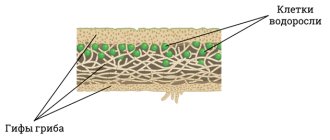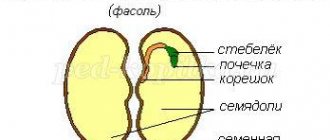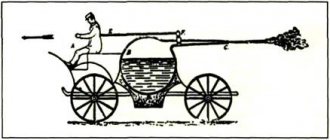The meaning of the baptism of Rus'
- Thanks to Christianity, the Kiev state began to unite.
- In addition, a huge impact was had on the development of culture. In those days, literature, painting, architecture, construction and various crafts developed rapidly.
- The pagans learned that there were moral values: the church opposed polygamy, attitudes towards women improved, and the death penalty was no longer used so often.
- Wealthy people began to build churches decorated with mosaics and frescoes. Even then they captured the imagination of foreigners.
- In general, thanks to baptism, the authority of the state increased.
Interesting Facts
- According to the Armenian chronicle, at first the Greeks tried to deceive Prince Vladimir and sent him an impostor instead of Princess Anna. He guessed about the deception and besieged Chersonesos.
- Baptism greatly changed the Kyiv prince - he turned into a very merciful ruler. On Sundays, it was no longer the squad that feasted in the princely palace, but the poor and needy.
- According to legend, the prince performed at such feasts as a servant.
- During baptism, Kiev residents were given a new shirt, so some were baptized two or three times. This shows that the people were not serious about joining this religion; many continued to believe in their idols, and went to be baptized solely for the sake of self-interest.
We also invite you to watch an interesting video on this topic, from which you will gain additional information about the significance of the baptism of Rus' by Prince Vladimir in the development of the history of the Slavic states to this day.
Previous
World HistoryOctober Revolution of 1917 - causes, main events, results
Next
World historyEducation of the USSR - reasons, stages of formation, composition, results
The appearance of the first Christians in Rus'
Prince Vladimir was not the first prince from Kyiv to convert to Christianity. Before him, other princes - Dir and Askold - went on a campaign to Constantinople. They had no intention of conquering it, only wealth was required. The campaign was a success and the princes returned home.
Rice. 2. “Baptism of the Kievites.” Author Klavdiy Lebedev
Their neighbor, the Byzantine Emperor Photius I, decided that he did not need pagan neighbors who observed cruel traditions at all. He decided that an embassy must be sent to Kyiv, the purpose of which was the baptism of the barbarians. The idea turned out to be successful, then the Kiev nobility, led by princes Dir and Askold, became Christians.
It is also reliably known that Princess Olga accepted Christianity, but she did not baptize her children.
Baptism of Kyiv
Upon returning to the capital, the prince baptized his sons and close people. Then he gave the order to destroy the temple. The figures of the deities were cut up and then burned, but this did not reduce the Russians’ fear of the wrath of Perun, whose statue was not destroyed. As a result, the idol was tied to the tail of the horse and it was dragged to the rapids, to the Pechenegs. On the way, twelve soldiers beat the statue with sticks to get rid of the demons.
After the expulsion of the main pagan god, Prince Vladimir ordered all Kievans to gather on the banks of the Dnieper. Hundreds of people simultaneously entered the water, where they were baptized by the priests who came with Anna and representatives of the clergy from Korsun (Chersonese).
The next to be baptized were the residents of Novgorod.
At first, the Slavs did not resist the spread of Christianity. Some minor discontent was encountered in Novgorod and Rostov. The faith spread slowly, and many pagans remained there.
Important! In general, throughout the country, Christianity was accepted voluntarily, but paganism was not destroyed. It existed for several centuries, often in secret. In the 11th century the Magi raised the people against Orthodoxy, but this had more political significance - to reduce the power of the Kyiv princes.
Rice. 4. Grand Duke Vladimir chooses faith. Author Ivan Eggink. 1822
Prerequisites
The princely power became stronger, but at the same time there was a need to centralize the state. There were a lot of pagan beliefs, the tribes did not unite because of them, which, in general, led to the weakening of the country.
In addition, the customs of the pagans were quite cruel. Eg:
- If a noble person died, besides him, his wife and servants were also sent to the mound;
- In order to gain Perun's favor, sacrifices were made to him, and they were not always animals.
What religions were there in Rus' before Christianity?
Before becoming Christians, the Slavs worshiped pagan gods. Each tribe had its own, and this god was considered the main patron and protector. Some of the deities were considered common Slavic.
The highest value was for:
- Volos (Veles)
- a deity who protects livestock, wealth and trade; - Perun
- the god who was in charge of lightning, thunder and thunder; - Mokoshi
- a goddess who protected the earth and promoted fertility; - Dazhdbog and Khorsa
- gods of the Sun; - Stribog
- the god who controlled the winds, blizzards and whirlwinds; - Semargl
- the god of crops and seeds.
Rice. 1. “The baptism of the people of Kiev by Prince Vladimir.” Artist Alexey Kivshenko. 1880
(Slide No. 9)
-Guys, who found the meaning of the word paganism? (Paganism
- polytheism, belief in many gods.)
We will be introduced to the pagan gods of the Ancient Slavs by the children who received an assignment in the last lesson: find a message about the pagan gods and tell about them in class.
-So, let’s begin our story: In ancient times, the world for Russian people was full of secrets. The ancient Slavs were never left alone, because wherever they were, they were always accompanied by good and not so good gods,
noisy and invisible
spirits.
The Slavic gods were formidable, but fair and kind.
The Slavs asked the earth, the wind, the rain, the sun for advice. ( Children take turns talking about the pagan gods of the ancient Slavs ).
Svarog
- the supreme ruler of the Universe, the ancestor of the gods.
He personified the sky, was the father of the sun and fire. Most Slavic gods are children of Svarog. (Slide No. 10) (Student assessment)
Dazhdbog
- son of Svarog, sun god.
As soon as the sun rose, the Slavs said that it was Dazhdbog himself riding across the sky in a wonderful chariot. The Slavs believed that the sun sees everything: both good and bad deeds. (Slide No. 11) (Student assessment)
Stribog
(Slide No. 12)
is the king of the winds.
All the winds were called Stribozh's grandchildren. They released whirlwinds, blizzards and blizzards from their open mouths. Among the ancient Slavs, the wind was omnipotent. This is told in fairy tales and epics. (Student assessment)
Belbog
(Slide No. 13)
is the god of reconciliation and harmony, friendship and sincerity, goodness, luck, happiness and good, as well as the patron of the arts and trade.
Sacrifices are made to him in the form of fun, games and joyful feasting. Belobog was portrayed as a wise, gray-bearded and gray-haired old man. (Student assessment)
Svyatobor (Slide No. 14)
- Supreme ruler of the forest.
Woe to the hunter who killed a deer and her cub: sooner or later Svyatobor will take revenge on him. Woe to the fisherman who catches fish when they spawn: all the same, a terrible retribution awaits him. (Evaluation of students)
In addition to the gods of nature, the Slavs also had other spirits - domestic ones. Each Slavic hut had its own spirit. His name was Brownie
(Slide No. 15)
.
The brownie was short, bearded and hairy. If the Brownie is fed on time and not offended, then there will be bread, salt and honey in the house, and quarrels in the hut will go away on their own. When the family moved to another house, the Brownie was solemnly invited to sit in a worn-out bast shoe or on a bread-baking blade and celebrate the housewarming. (Student assessment)
The owner of the water was considered to be Vodyanoy
(Slide No. 16)
- an old man with a large belly filled with water and long green hair, like algae.
He usually lived in whirlpools, swamps and near mills. Everything that once drowned became his prey. Vodyanoy’s life began only at night, then it was impossible to swim and it was better not to drink water. The Vodyanoy sleeps all winter. He wakes up only on April 3rd. On that day, the ice cracks on the rivers - this is Vodyanoy stretching. (Student assessment)
the Leshy
was in charge (Slide No. 17)
.
He woke up in the spring and immediately began to play mischief: clap his hands, moo like a cow, meow like a cat, make noise like a river. And so that Leshy would not get confused in the thicket, the man, going into the forest, brought him a gift. And then the berries and mushrooms themselves asked to be included in the basket. (Student assessment)
-This is how the Slavs got along with their spirits and gods. And they, in gratitude, protected the house, the yard, and all Slavic life.
-Did you guys like how your comrades talked about the pagan gods of the ancient Slavs?
-It’s time for us to move on, Prince Vladimir is waiting for us to visit.
Second station “Prince Vladimir”
(Slide No. 18)
Prince Vladimir was born in 963. He was raised by his uncle Dobrynya, a pagan by faith. As an eight-year-old boy, Prince Vladimir began to rule in Novgorod, and then took Kyiv. He was a brave warrior and from his youth went on long campaigns. (Slide No. 19)
With his friends, Prince Vladimir loved to hunt bears, wild boars and deer.
(Slide No. 20)
After a hunt or campaign, the young prince loved to listen to stories and songs about distant lands, about wars, about battles, about the glorious deeds of his ancestors.
(Slide No. 21)
Prince Vladimir often listened to stories about how other peoples live, what they do, what gods they worship.
(Slide No. 22)
He understood that Slavic idols were only pieces of stone and wood and began to look for a new, correct faith for himself and for his people.
(Slide No. 23)
-Now you and I will find out what faith the Prince chose for the Slavs. And we learn about faith by reading the legend recorded by the chronicler Nestor in The Tale of Bygone Years. (Slide No. 24)
-What new word did you meet? (A chronicler is a person who recorded reliable events in his manuscript.)
-We work in groups: I hand out questions on cards. To answer these questions, you must read an excerpt from the legend, which you also have on the cards.
-Before we get to work, let's remember the rules of friendly work, read in unison. (Slide No. 25)
1 card:
-What envoys came to Vladimir?
-How do Muslims worship God?
-Find and read about the German faith.
First, envoys from the people who worship the Prophet Muhammad came to Vladimir.
They call their faith
Islam
. The ambassadors told the prince that according to their faith, one must honor God, not eat pork, not drink wine, in order to begin to live for one’s pleasure in paradise. Vladimir listened to them, said nothing, but decided himself: “What kind of joys are these after death? It’s better to live your life in fun.”
Then those who were called Germans
because their language was not understood, that is,
Catholics.
However, Vladimir did not like them either: there was too much severity in their story, they did not so much praise their faith as they scolded the Russian pagan gods.
2 card:
-What envoys came to Vladimir?
-Why didn’t Vladimir like the faith of the Khazar Jews?
-Find and read what happened to the land of the Khazar Jews.
After arriving at the Kiev prince, the Khazar Jews
. The prince asked them: “Where is your land?” The Jews cried and said that God was angry with them and resettled their people all over the world. Vladimir was saddened by this answer, because he did not want to let Rus' spread around the world.
3 card:
-What envoys came to Vladimir?
-What did Vladimir order to his boyars and merchants? Read it.
-Find and read the words of the boyars and merchants about different beliefs, which returned to Vladimir a year later.
In the end, the Greek
, that he spoke about
the Orthodox
faith. The prince liked his words more than all the speeches; everything here was suitable for Rus'. But Vladimir did not immediately decide on this faith. He gathered his faithful squad, boyars and merchants, and ordered them this way: “Go to different lands and see everything for yourself, and then come back and report who keeps their faith and honors God.”
Ten of the best husbands set off around the world and returned back exactly a year later. The boyars said about Muslims that “there is no joy in them, and that is why their law is not good.” About Catholics - “they didn’t see any beauty.” Only Orthodoxy appealed to the boyars: there is fun in it, joy, and beauty. And the Orthodox people also love feasts and holidays, just like those organized at the court of Prince Vladimir.
-So, Prince Vladimir liked Christianity most (Slide No. 26)
, which the Greek monks told him about. And Prince Vladimir decided to convert to Christianity.
(Christianity is the belief in one God, Jesus Christ)
-Well done! We visited Prince Vladimir, helped him deal with accepting the faith, now evaluate yourself, how you worked in the group and put a rating on the score sheet yourself.
(Children evaluate their work and put a mark on the evaluation sheet.)
